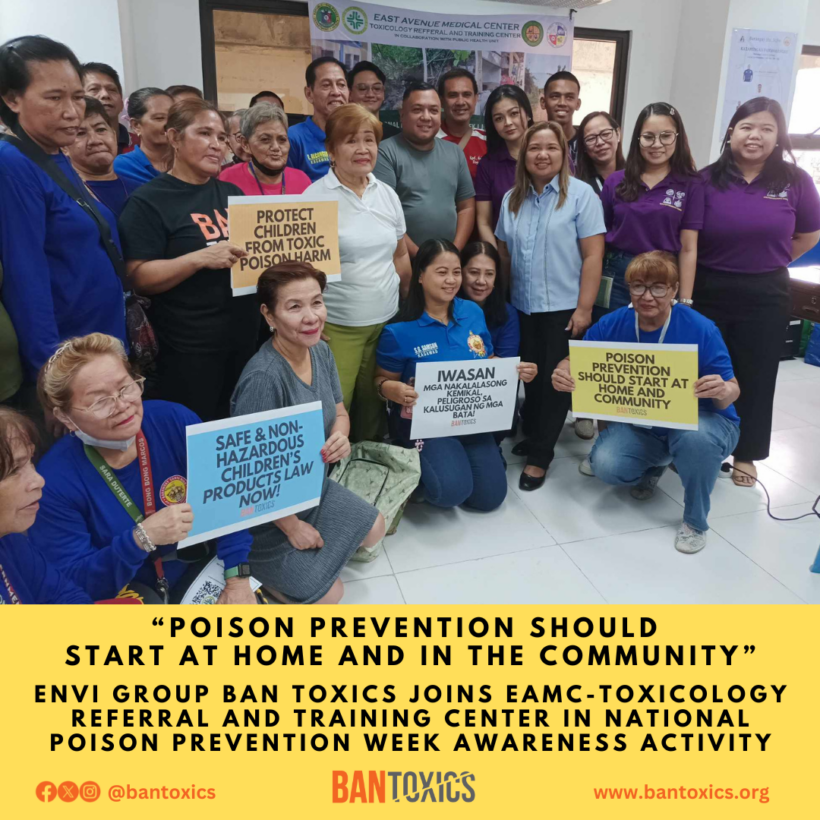“Poison prevention should start at home and in the community.” This was the main message of environmental NGO BAN Toxics as they joined the East Avenue Medical Center (EAMC) Toxicology Referral and Training Center’s lecture forum in celebration of National Poison Prevention Week.
Titled “Community and Collaboration: Uniting to Prevent Poisoning,” the lecture forum was held in Brgy. Sto Niño, Galas, Quezon City, and was attended by about 70 households from the barangay. National Poison Prevention Week is observed every 4th week of June by virtue of Proclamation No. 1777 issued in 2009.
BAN Toxics’ advocacy and campaign officer, Thony Dizon, spoke at the event about their efforts to protect children from exposure to toxic chemicals, and shared tips on how to prevent poisoning at home and in school.
“Aside from common household items that are explicitly hazardous, there are also everyday children’s items such as toys, school supplies, and care products that may seem harmless but actually contain toxic chemicals,” Dizon said.
Dizon was referring to children’s products available in the market, especially in bargain shops, that are found to contain hazardous chemicals such as lead, mercury, cadmium, short-chain chlorinated paraffins (SCCPs), and endocrine-disrupting chemicals (EDCs) such as phthalates, triclosan, and parabens, among others.
“First and foremost, when buying children’s products, check the product label and information to verify that no hazardous substances are used. Do not buy products that have no label or information. Also, check if the product has been notified by the Food and Drug Administration (FDA) via https://verification.fda.gov.ph. As much as possible, buy from reputable stores that are duly registered,” Dizon added.
The group also said that while the government should intensify its efforts in preventing the production and importation of children’s products that contain hazardous chemicals, households and communities also have an obligation to exercise vigilance when purchasing these items and ensure a safe environment for children.
In a statement earlier this week, BAN Toxics urged the government to pursue the “Safe and Non-Hazardous Children’s Products Act,” a bill that was unanimously passed by the 18th Congress in 2017 but was never enacted as law by the Duterte Administration.
“Children are the most vulnerable members of our society, and it is everyone’s duty to safeguard them from toxic and poisonous chemicals,” Dizon said.






